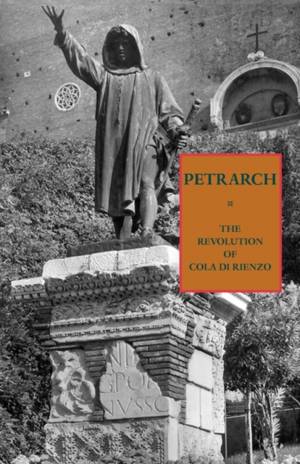
Bedankt voor het vertrouwen het afgelopen jaar! Om jou te bedanken bieden we GRATIS verzending (in België) aan op alles gedurende de hele maand januari.
- Afhalen na 1 uur in een winkel met voorraad
- In januari gratis thuislevering in België
- Ruim aanbod met 7 miljoen producten
Bedankt voor het vertrouwen het afgelopen jaar! Om jou te bedanken bieden we GRATIS verzending (in België) aan op alles gedurende de hele maand januari.
- Afhalen na 1 uur in een winkel met voorraad
- In januari gratis thuislevering in België
- Ruim aanbod met 7 miljoen producten
Zoeken
Omschrijving
In Rome on May 20, 1347 Cola di Rienzo, a young visionary with a gift for oratory, overthrew the rule of the barons and the pope. Cola's revolution then attempted to restore the greatness of the medieval commune, revive the ancient Roman Republic, and usher in a new age of liberty, justice and peace. The bright hope for Rome and Italy soon changed to disillusionment, however, as pope and barons conspired to isolate and then topple the Tribune of the People only seven months later. After a period of exile and wandering in the Abruzzi Mountains, he traveled to the Holy Roman Emperor in Prague where he was befriended by Charles IV but eventually arrested, imprisoned by the Inquisition, and turned over to his arch-enemy, Pope Clement VI in Avignon. In a bizarre turn of events he was freed and returned to Rome to restore the republic. Shortly thereafter the barons revolted again; and Rienzo was slain by a mob on the Capitoline Hill, near where his bronze statue now stands. Using their letters and other writings, plus many other contemporary documents, this book tells the story of the relationship between Cola di Rienzo and Francesco Petrarch, the poet and Renaissance humanist. Petrarch's initial break with the Tribune and his eventual bid to save him from death offer a remarkable case study of the interaction between the world of letters and politics - between the contemplative and the active lives - in the early Renaissance. Translated from Latin by Mario E. Cosenza. 3rd, revised, edition by Ronald G. Musto. Updated introduction, bibliography, map, notes and index.
Specificaties
Betrokkenen
- Auteur(s):
- Vertaler(s):
- Uitgeverij:
Inhoud
- Aantal bladzijden:
- 224
- Taal:
- Engels
Eigenschappen
- Productcode (EAN):
- 9780934977005
- Verschijningsdatum:
- 25/02/2010
- Uitvoering:
- Paperback
- Formaat:
- Trade paperback (VS)
- Afmetingen:
- 140 mm x 216 mm
- Gewicht:
- 290 g

Alleen bij Standaard Boekhandel
+ 67 punten op je klantenkaart van Standaard Boekhandel
Beoordelingen
We publiceren alleen reviews die voldoen aan de voorwaarden voor reviews. Bekijk onze voorwaarden voor reviews.









